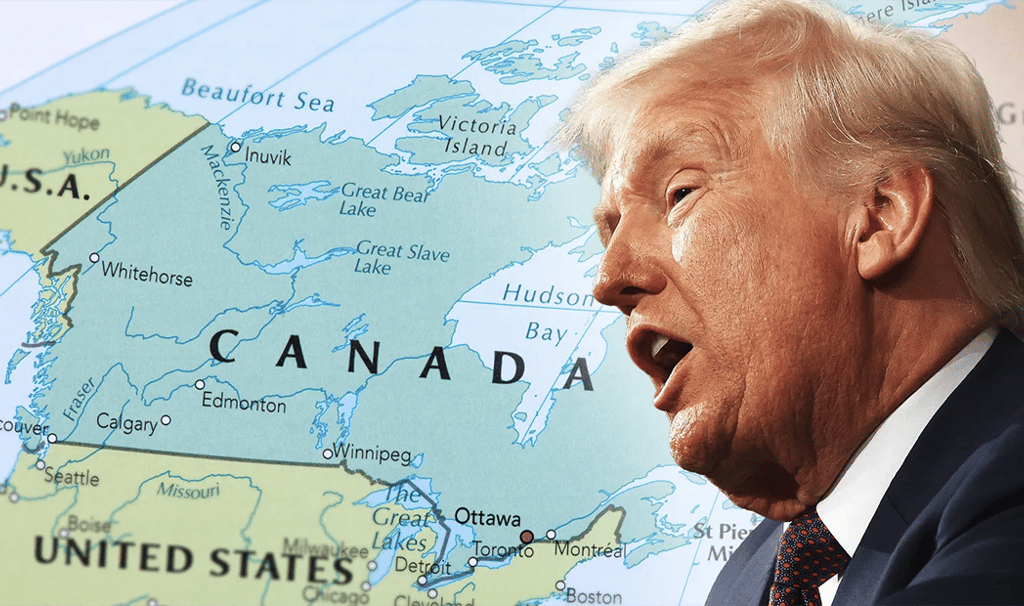Canada’s Election Shocker: Trump’s 51st State Proposal Ignites a Firestorm
4/29/20254 min read


Canada’s Election Shocker: Trump’s 51st State Proposal Ignites a Firestorm
Introduction: A Campaign Like No Other
On April 28, 2025, Canadians headed to the polls to choose between Liberal leader Mark Carney and Conservative leader Pierre Poilievre in a federal election that was anything but ordinary. What should have been a straightforward contest turned into a geopolitical spectacle when U.S. President Donald Trump dropped a bombshell: a social media post suggesting Canadians vote for him to make Canada the 51st state. This audacious proposal, paired with promises of economic windfalls, sent shockwaves through the campaign, reshaping voter sentiment and sparking fierce debates about sovereignty, identity, and the future of U.S.-Canada relations. Let’s dive into this wild election and what it means for both nations.
The Election Setup: A Tight Race Upended
Canada’s parliamentary system doesn’t allow direct votes for prime minister, but the campaign signs dotting rural Ottawa told a different story—Mark Carney’s Liberals and Pierre Poilievre’s Conservatives were in a head-to-head battle. Early polls gave the Conservatives a commanding 25-point lead, with analysts predicting a landslide majority. But as The Guardian reported, Trump’s aggressive tariffs and repeated 51st-state rhetoric flipped the script. By election day, the Liberals surged ahead, capitalizing on a wave of Canadian pride that transcended regional divides, even dampening Quebec’s separatist movement for the moment.
Carney, the Liberal leader, cast his ballot in Ottawa, surrounded by blooming daffodils—a fitting metaphor for his campaign’s late spring revival. Poilievre, defending his long-held Ottawa district, remained defiant, but the Conservatives found themselves trailing in vote-rich regions. With 343 seats up for grabs and 172 needed for a majority, the stakes couldn’t have been higher.
Trump’s Bombshell: A 51st State?
Enter Donald Trump. On election day, he took to social media with a jaw-dropping proposal: “Elect the man who has the strength and wisdom to cut your taxes in half, increase your military power, for free… if Canada becomes the cherished 51st State of the United States of America.” Trump, seemingly referring to himself despite not being on the ballot, painted a utopian vision of a borderless North America with booming industries and zero tariffs. He claimed the U.S. could no longer “subsidize Canada with the Hundreds of Billions of Dollars a year,” a statement that drew skepticism but amplified his narrative.
This wasn’t Trump’s first jab at Canada. As Newsweek reported, his administration’s tariffs had already strained U.S.-Canada relations, prompting rallies like “Elbows Up in the Sault” to showcase Canadian unity. Trump’s earlier comments in February about erasing the “artificially drawn line” of the border had already riled Canadians, with Poilievre vowing at a rally: “We will never be the 51st state.”
Canadian Leaders Fire Back
The response from Canada’s leaders was swift and unyielding. Poilievre, the Conservative leader, issued a sharp rebuke on X: “The only people who will decide the future of Canada are Canadians at the ballot box. Canada will NEVER be the 51st state.” He framed the election as a chance to “stand up to America from a position of strength.” Meanwhile, Mark Carney, the Liberal Prime Minister, posted a video on X with a simple message: “This is Canada—and we decide what happens here.” Their words resonated with voters, who, according to CTV News, were increasingly rallying around national unity in the face of external pressure.
The Fallout: A Shift in Sentiment
Trump’s interference didn’t just spark outrage—it shifted the election’s momentum. The Guardian noted that the Conservatives’ once-dominant lead evaporated as Canadians recoiled at the idea of losing sovereignty. Polls from all 12 major firms showed the Liberals poised for a majority, a dramatic turnaround fueled by a swell of patriotic sentiment. Even in Quebec, where separatist movements often gain traction, Trump’s threats united voters under a shared Canadian identity—at least for now.
What’s Next for U.S.-Canada Relations?
This election wasn’t just about who would lead Canada—it exposed the fragility of U.S.-Canada relations in an era of heightened geopolitical tension. Trump’s tariffs and statehood remarks have already cost Canadian businesses dearly, and his latest stunt may deepen the rift. Yet, it also highlighted Canada’s resilience. As polls closed at 9:30 p.m. ET on April 28, the world watched to see if Carney’s Liberals would secure a majority or if Poilievre’s Conservatives could stage a last-minute comeback.
Conclusion: A Defining Moment
Canada’s 2025 election will be remembered as the moment when external interference collided with national pride, reshaping a nation’s political landscape. Trump’s 51st-state proposal may have been a provocative ploy, but it backfired, galvanizing Canadians to assert their independence. As the dust settles, both countries must navigate the fallout of this unprecedented election. Will U.S.-Canada relations recover, or are we witnessing the start of a colder, more contentious era?
Thought-Provoking Questions for Readers
- Do you think Trump’s proposal was a serious suggestion or a strategic move to influence Canada’s election?
- How should Canada balance its economic ties with the U.S. while safeguarding its sovereignty?
- Could this election mark a turning point in how Canadians view their national identity—especially in regions like Quebec?
Reference : Thank you.
The X post by ABC7 News highlights a Canadian federal election on April 28, 2025, where voters chose between Liberal leader Mark Carney and Conservative leader Pierre Poilievre, with 343 seats at stake and 172 needed for a majority, amid a campaign shaped by U.S.-Canada tensions.
- President Donald Trump’s social media statement, suggesting Canadians vote for him to make Canada the 51st U.S. state with promises of economic benefits, stirred controversy, prompting Poilievre to assert Canada’s sovereignty and Carney to emphasize Canadian self-determination.
- Polls showed a late shift favoring the Liberals, reversing the Conservatives’ earlier 25-point lead, influenced by deteriorating U.S. relations due to Trump’s tariffs and statehood remarks, as reported by The Guardian and Newsweek.
hello@boncopia.com
+13286036419
© 2025. All rights reserved.